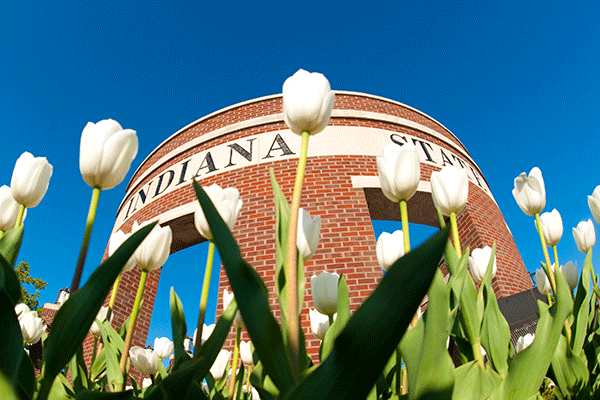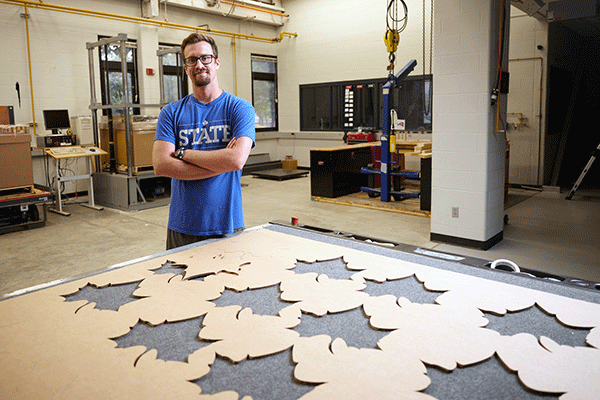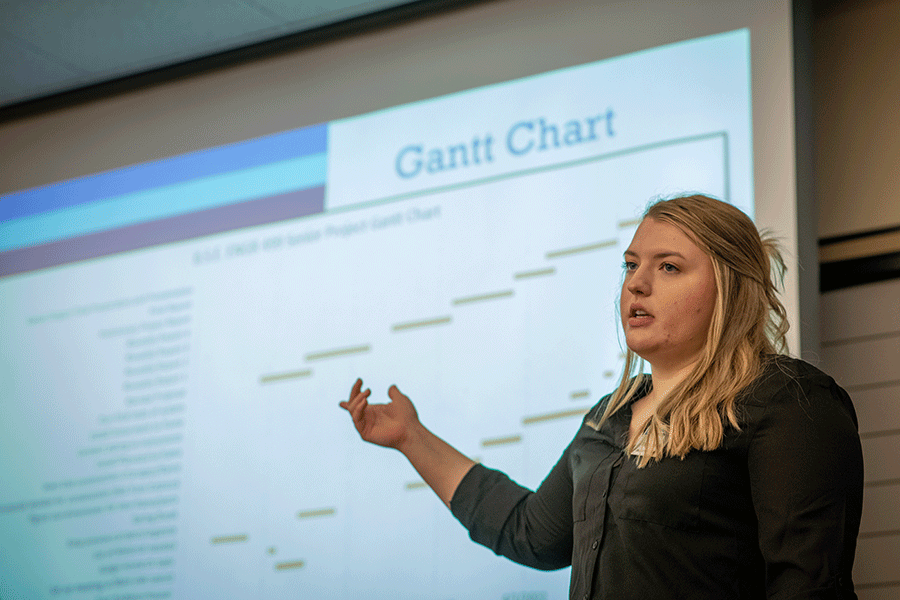Why Earn a Bachelor’s Degree in Civil Engineering Technology at Indiana State?
Civil engineering technology provides the practical skills necessary to design, construct, and maintain infrastructure projects like bridges and buildings. Graduates of the Civil Engineering Technology BS program at Indiana State gain technical knowledge and hands-on expertise that enable them to manage critical technical aspects of large civil engineering projects.
Develop Career-Ready Skills
The Civil Engineering Technology BS program combines laboratory experiences with coursework in areas including mechanical and civil engineering technology, construction, electronics and computer technology, and engineering. You will develop problem-solving skills and experience while learning to:
- Examine and interpret prints and specifications
- Confer with contractors and owners to enforce contract specifications, building codes, and zoning ordinances
- Test soils, asphalt, and concrete, and inspect other related construction activities
- Perform land surveying and computer-assisted design (CAD)
Upon graduation, you will be that valuable, highly qualified how-to person who can take a fledgling project from theoretical concepts and design to the desired outcome or product.
Learn from Our Excellent Faculty
The Applied Engineering and Technology Management Department offers small class sizes, allowing for individual attention from instructors.
Civil Engineering Technology is a multidisciplinary program, which means you will benefit from courses taught by professors with a diversity of thought, expertise, and industry experience. Most hold doctoral degrees. All are dedicated to your success.
Leverage Resources, Technology, and Networks
Your coursework will be centered in the University's John T. Myers Technology Center, which has more than 20 state-of-the-art laboratories filled with up-to-date equipment and supplies.
In addition to your coursework, you may participate in activities and organizations that enable you to interact with other students and industry professionals. These include: the American Society of Civil Engineers (ASCE); the American Institute of Steel Construction (AISC); the Construction Specifications Institute (CSI); and Epsilon Pi Tau (the international honorary for professions in technology).
What You’ll Learn in the Civil Engineering Technology Program
Civil Engineering Technology combines coursework in various subjects, including mechanical engineering technology, construction, hydrology, CAD, quality control and assurance, workplace law, and geographic information systems.

Transfer Credit
Indiana State University accepts credit from regionally accredited colleges and universities within the United States, and from selected schools located outside the United States. Credit also may be granted for military training and experience. Previously earned college credit can be applied toward completion of the program per Indiana State's transfer guidelines.
Transfer GuidelinesCareer Possibilities for Civil Engineering Technology Majors
Our graduates are hired for a variety of industry roles, including project management, design and construction, infrastructure maintenance and rehabilitation, project estimation, on-site quality assurance, environmental protection, and technical sales.
Industries with demand for civil engineering technology graduates include construction, oil and gas, public utilities, telecommunications, transportation, and engineering and architectural firms, among others. The Bureau of Labor Statistics projects growth in demand for Construction Managers (8%), Civil Engineers (7%), and Environmental Engineers (4%) from 2021-31.
Maximize Your Experience at Indiana State
Explore our Honors College to learn how you can maximize your college experience with faculty mentors, undergraduate research, internships, and Honors housing. Students in the Honors College also enjoy opportunities to travel across the nation and abroad for conferences, service-learning trips, and immersive academic and cultural studies.
Learn About the Honors CollegeAccreditation
Indiana State University is accredited by the Higher Learning Commission.
The Civil Engineering Technology undergraduate program is accredited by the Engineering Technology Accreditation Commission of ABET. https://www.abet.org
Mission
The mission of the Civil Engineering Technology (CVET) degree program at Indiana State University is to prepare graduates with the technical and managerial skills necessary to enter careers in the planning, design, construction, operation, or maintenance of the built environment and global infrastructure.
Vision
The Civil Engineering Technology degree program will be a leader in integrating teaching, research, and creative activity in an engaging, challenging, and supportive learning environment preparing productive citizens for Indiana and the world while creating and maintaining a credible presence within the civil engineering sector of education and industry.
Program Educational Objectives (PEOs)
Graduates two to three years into their career should have the foundation to:
- PEO 1 (Technology) - Apply disciplinary reasoning, critical thinking, and hands-on skills to identify, analyze, and solve problems,
- PEO 2 (Communicate) - Communicate effectively in both oral and written form to articulate technical knowledge, ideas, and proposals,
- PEO 3 (Management and/or Teamwork) - Perform effectively, think independently, and work collaboratively in a team environment in a membership or leadership role.
Student Outcomes (SOs)
Students at the time of graduation are prepared to demonstrate:
(1) An ability to apply knowledge, techniques, skills, and modern tools of mathematics, science, engineering, and technology to solve broadly defined engineering problems appropriate to the discipline.
(2) An ability to design systems, components, or processes meeting specified needs for broadly defined engineering problems appropriate to the discipline.
(3) An ability to apply written, oral, and graphical communication in broadly defined technical and non-technical environments; and an ability to identify and use appropriate technical literature.
(4) An ability to conduct standard tests, measurements, and experiments and to analyze and interpret the results to improve processes.
(5) An ability to function effectively as a member as well as a leader on technical teams.
In addition, the graduate will be able to:
- Utilize principles, hardware, and software that are appropriate to produce drawings, reports, quantity estimates, and other documents related to civil engineering;
- Conduct standardized field and laboratory tests related to civil engineering;
- Utilize surveying methods appropriate for land measurement and/or construction layout;
- Apply fundamental computational methods and elementary analytical techniques in sub-disciplines related to civil engineering;
- Plan and prepare documents appropriate for design and construction;
- Perform economic analyses and cost estimates related to the design, construction, operations and maintenance of systems associated with civil engineering;
- Select appropriate engineering materials and practices; and
- Perform standard analysis and design in at least three sub-disciplines related to civil engineering.
Related Programs
-

Engineering (BSE)
Bachelor's
-

Packaging Engineering Technology (BS)
Bachelor's
-

Engineering Technology Management (BS)
Bachelor's




